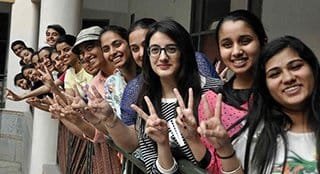In India, the education system offers various options for students pursuing their studies through distance education, especially at the Class 12th senior secondary level. Distance education provides flexibility and accessibility to students who cannot attend regular classes due to various reasons such as personal commitments or geographical constraints. If you’re considering enrolling in a Class 12th distance education senior secondary program in India, here’s a comprehensive guide to help you understand the admission process, eligibility criteria, and critical points to consider.
Understanding Distance Education for Class 12th in India:
- Distance education, also known as correspondence or open education, is a mode of learning that allows students to study from anywhere at their own pace.
- The National Institute of Open Schooling (NIOS) and various state open schools offer Class 12 programs through distance education in India.
- The Government of India recognizes distance education programs as equivalent to regular education by the CBSE or other state boards.
The Government of India and the Ministry of Human Resources recognise the National Board under the popular name Nios Admission. Students can apply here for Nios 12th class admission.
Eligibility Criteria for 12th class distance education Courses :
- The minimum age for admission to the distance education Class 12 program is 15 years.
- For the NIOS Admission Distance Education class 12th, there is no upper age limit for admission.
- Students who have passed Class 10 or its equivalent from a recognized school board are eligible for distance education 12th admission.
Distance education 12th Admission Process:
Admission to the 12th class nowadays is an online process. All students must fill out an online form from the respective board where they want to apply for distance education 12th Admission.
Students should fill out the online admission application form and submit it with the required documents, such as mark sheets, identity proof, and photographs.
After completing the online form, students must pay the prescribed fees for the program. Fees vary depending on the board and the course chosen.
Documents Required for 12th Class Distance Education Course:
- Class 10 mark sheet or its equivalent
- Identity proof (Aadhar card, passport, etc.)
- Passport-sized photographs
- Category certificate (if applicable)
Choosing Subjects for 12th class Admission:

Study Material and Support for Distance Education Class 12th:
Distance education boards provide study material in textbooks, audio-visual materials, and online resources.
Students can also attend face-to-face classes at designated study centres for additional support.
Examination and Evaluation of Distance Education Senior Secondary:
Distance education boards Nios and other state boards conduct examinations twice yearly, usually in April-May and October-November. The evaluation process includes assignments, practical exams (if applicable), and theory exams.
Results and Certification of distance education senior Secondary courses:
Results are declared online on the respective board’s website. Successful students are awarded a passing certificate and mark sheet equivalent to regular students.
Future carrer Opportunities with Distance Education:
Students who pass the Class 12 exams through distance education are eligible for higher education in universities and colleges in India and abroad. Depending on their field of study and career goals, they can pursue vocational courses or join the workforce.
Advantages of Distance Education class 12th:
- Flexibility: Students can study according to their schedule and time, enabling students to balance their studies with other commitments such as work or family.
- Accessibility: Distance education eliminates the need to travel to a physical campus, making it accessible to students in remote or rural areas.
- Cost-effective: Distance education 12th programs are often more affordable than traditional classroom-based programs, as they eliminate the need for expenses such as commuting and accommodation.
Challenges of Distance Education for Class 12th:
- Self-discipline: Distance education requires high self-discipline and motivation, as students are responsible for managing their study schedules.
- Limited social interaction: Unlike traditional classroom-based programs, distance education may lack face-to-face interaction with peers and instructors, impacting the learning experience.
- Technological requirements: Distance education often relies on technology such as computers and internet access, which may be a barrier for students with limited resources.
Tips for Success in Distance Education Class 12th:
- Students must Create a study schedule for all subjects and stick to it to ensure consistent progress.
- Students should Stay organized by keeping track of assignments, deadlines, and study materials.
- Study strictly according to course materials and participate in online discussions to enhance your understanding.
- Seek support from instructors, tutors, or fellow students when needed.
- Stay motivated by setting study goals and reminding yourself of the benefits of completing your education.
Recognition of Distance Education class 12th Certificates:
- The University Grants Commission UGC in India and the Ministry of Human Resource Development MHRD recognize distance education certificates and degrees in India.
- They are also accepted by employers for job opportunities and by universities for further education.
Distance education Class 12 admission in India offers a flexible and accessible learning option for students. By understanding the admission process, eligibility criteria, and critical points, students can make an informed decision about pursuing their studies through distance education. Students can check the specific requirements and guidelines of the distance education board they are interested in for the most accurate and up-to-date information.
Comparison of distance education class 12th with Regular Education:
- In regular education, students attend classes in a physical classroom and interact face-to-face with teachers and peers, while in distance education, students study remotely using study materials and online resources.
- Regular education follows a fixed schedule and curriculum, whereas distance education offers flexibility regarding study pace and schedule.
- Regular education may provide more opportunities for hands-on learning and practical experience. In contrast, distance education relies more on theoretical knowledge and self-study.







